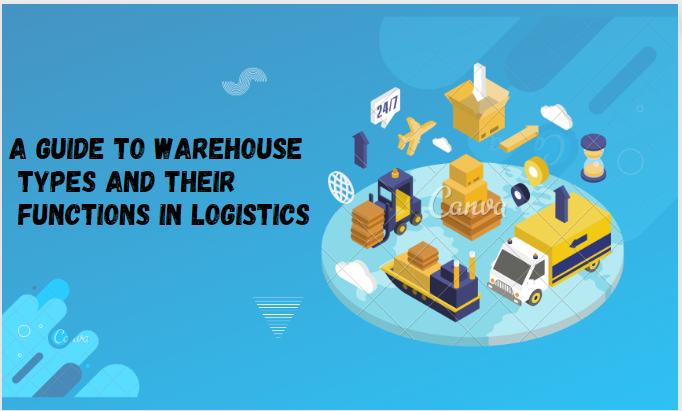A Guide to Warehouse Types and Their Functions in Logistics

The warehouse is a critical part of any logistics operation. It is where goods are stored and managed, and it serves as an important link in the chain that connects suppliers to customers. Depending on the type of goods being stored, different types of warehouses can be used. In this blog, we’ll explore the different types of warehouses and their functions in logistics.
Types of Warehouse
Public Warehouses
Public warehouses are owned by third-party companies that offer storage services for a variety of goods. These warehouses provide both short-term and long-term storage solutions for a variety of industries, including retail, manufacturing, healthcare, and food service.
Public warehouses handle a wide range of tasks, including receiving goods from suppliers, preparing orders for shipment, tracking inventory levels and shipments, and delivering goods to customers.
Private Warehouses
Private warehouses are owned by companies that use them to store their own products or those of their customers. Private warehouses typically specialize in one specific area, such as retail or manufacturing.
They generally do not offer services such as order fulfillment or customer delivery, but they may offer additional services such as inventory management or value-added services like repackaging or labeling products.
Bonded Warehouses
Bonded warehouses are used to store imported goods that have not yet been cleared through customs. These types of warehouses provide a secure environment while the goods await customs clearance and payment of duties and taxes due on the goods before they can be released into the marketplace.
Bonded warehousing offers importers several benefits, including reduced costs associated with storing their goods until they can be sold or distributed into the market.
Also Read: 5 Ways To Offer Free E-commerce Shipping On Your Store
Cold Storage Warehouses
Cold storage warehouses are designed specifically for temperature-sensitive goods such as fresh produce or dairy products that must be kept at specific temperatures in order to remain fresh and safe for consumption.
Cold storage facilities offer complete temperature control throughout the entire facility so that all stored items remain cool even during extreme weather conditions outside the building itself. Cold storage facilities also often offer additional services such as repackaging or labeling products prior to shipment out to customers’ locations.
Conclusion
Warehouse operations play an essential role in supply chain management by providing a secure place for storing materials until they are ready to be shipped out to customers’ locations around the world. Different types of warehouse operations specialize in different areas, offering unique advantages depending on what type of product needs to be stored securely until it is ready for sale or distribution into the marketplace.
Logistics services in India are the next requirement after warehousing, for successful order fulfillment. Logistics partners like NimbusPost offer multiple courier partners to help eCommerce businesses scale by delivering across 29000+ pin codes. Plus, fast API integration, one-day COD remittance, fraud detection through AI-enabled technology, and quick deliveries are some other attractive aspects of their services.
Comments
Post a Comment